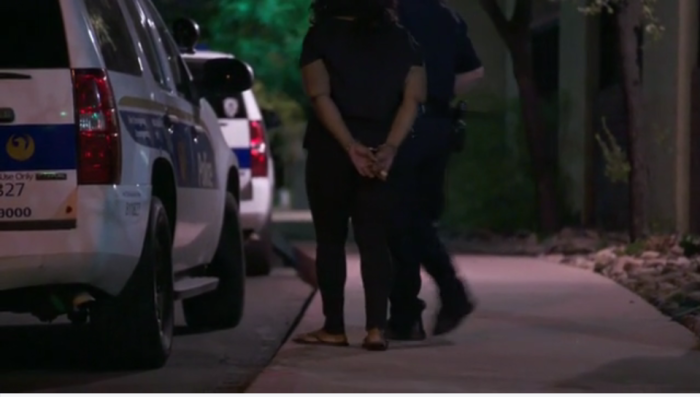Reports That California Legalized Child Prostitution Got It Wrong, Victims Advocate Says

Contrary to reports that California just legalized child prostitution, a newly implemented law accurately views minors involved in prostitution not as criminals but victims, according a Los Angeles-based sex trafficking victims advocate.
Kim Biddle, founder and CEO of Saving Innocence, a nonprofit organization that rescues victims of the sex trade in southern California, whom The Christian Post profiled on Oct. 31, told CP that it is important to remember a crucial distinction when discussing "child prostitution."

"It is a misnomer to ever use the word prostitute and child in the same phrase," Biddle said. "A child has distinct vulnerabilities making her too young to consent to sex with an adult, while the word 'prostitute' is associated with choice, shame, and a 'profession' that arouses judgement from society."
Furthermore, she added, "this should be especially obvious if the victim is between the ages 0-18, making her too young to consent to sex with an adult who is exploiting his power over her. In any other circumstance, if a 14-year-old girl has been involved in a sex act with a 45-year-old
male, this is Statutory Rape."
"We recognize the vulnerability of her age, circumstances and brain development and we also understand the adult must be held responsible and accountable. There is no difference just because that 45-year-old male pays to rape that child. In fact, we should see this as a more serious offense because it shows premeditation. "
Yet this new law has raised the ire of some who think it will incentivize even more exploitation.
Writing in The Washington Examiner Thursday, Republican California State Assemblyman Travis Allen contended that with the adoption of SB 1322, the law that forbids police officers from arresting people under the age of 18 who are engaging in prostitution or loitering with the intent to do so, the California Democratic majority had effectively legalized child prostitution.
Allen acknowledged that minors involved in prostitution are indeed victims, but "allowing our law enforcement officers to pick these minors up and get them away from their pimps and into custody is a dramatically better solution than making it legal for them to sell themselves for sex."
"It just opens up the door for traffickers to use these kids to commit crimes and exploit them even worse," Allen continued, quoting Alameda County District Attorney Nancy O'Malley's words to the media.
Yet Allen's words are misleading, according the Monday column in the Sacramento Bee, in that O'Malley — who is a national leader on human trafficking issues — initially opposed the bill but ended up backing the legislation.
And while the law was approved by Democrats, the dominant party in California, Democrats did not have two-thirds control when the bill was passed, another insinuation Allen made in the Examiner. Also, several Republican legislators supported the measure.
CP asked Biddle if Allen's concerns had any merit. She believes that a better approach is to look at what is working around the world, and recognize the twisted power dynamics operating in the sex industry.
"The Nordic Model in Sweden is a perfect example of what has decreased human trafficking and crime in general in that country. They recognized that the children and a large majority of young women involved in what was preconceived as 'prostitution' were actually under the control of a pimp, trafficker, or abusive controller who was taking all the money and using them for financial gain. So they focused on empowering the women and children to get out of their circumstances and recover from their victimization, while the controllers and driving forces behind the business of sex trafficking were focused on criminalization — the traffickers and the buyers," Biddle offered.
"Before these laws were in place, the trafficker expected the child to be the one arrested, taking all the blame. ... However these laws are only as effective as there are victim services in place because now law enforcement can detain and not arrest — which is appropriate intervention — but we have now tied the hands of law enforcement from 'keeping the children safe in jail,' and provided no alternative for escape from their trafficking with an effective aftercare support system in place that does not place full burden of responsibility on an already over extended and undertrained child welfare system. Specialized victim advocates are desperately needed to bridge that gap," she concluded.




























